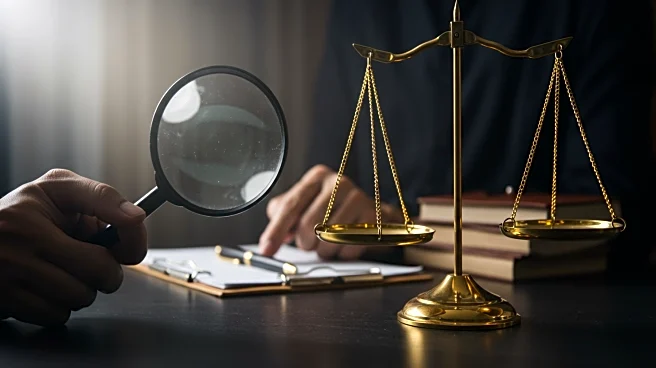What's Happening?
The Department of Justice has been under intense scrutiny following its handling of the Epstein investigation and a recent search of John Bolton's home. The DOJ released transcripts from an interview with Ghislaine Maxwell, a key figure in the Epstein case, as part of efforts to address public criticism. Maxwell, serving a 20-year sentence, denied witnessing any inappropriate behavior by President Trump. Meanwhile, the FBI's search of Bolton's premises is linked to classified documents, raising concerns about the DOJ's impartiality, especially as it follows investigations into other Trump critics.
Why It's Important?
These developments underscore ongoing tensions within the U.S. political and legal landscape. The DOJ's actions are pivotal in shaping public trust in federal institutions, particularly regarding high-profile cases involving political figures. The scrutiny over the Epstein case and the search of Bolton's home could influence perceptions of the DOJ's independence and its role in political matters. The outcomes of these investigations may have significant implications for future legal proceedings and the political climate, affecting stakeholders across the political spectrum.
What's Next?
The DOJ's handling of these cases will likely continue to be a focal point of public and political debate. The release of Epstein-related files to the House Oversight Committee could lead to further revelations, impacting the DOJ's credibility. Additionally, the investigation into Bolton and other Trump critics may prompt calls for oversight and reform within the DOJ. Stakeholders, including political leaders and civil society groups, may push for greater transparency and accountability in federal investigations.









